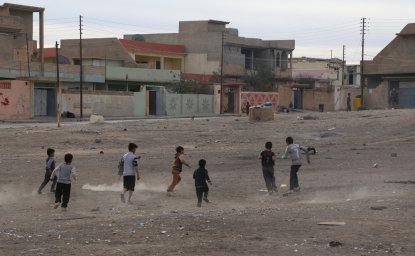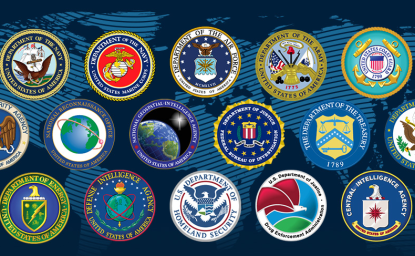Attacks by violent extremists have been on the rise since 2010, and most victims are Muslims. This trend demonstrates that the Muslim world is not pitted against the West in an ideological "clash of civilizations," but that the Muslim world is facing a more complex struggle for the future of Islam, according to Anthony Cordesman’s new report from the Center for Strategic and International Studies. Conflating extremism and Islam can “trigger bigotry and prejudice of a kind that divides and separates the West from the Muslim world,” Cordesman says. At the same time, the Muslim world should not “remain in denial about the true character” of the extremist threat. The only way to effectively counter violent extremism, Cordesman argues, is to strengthen strategic partnerships between the Muslim world and the West. The following are excerpts from the report.
The new outburst of violent terrorism in Paris, the threat of plans for other attacks in Belgium, and reports of other planned attacks by ISIS have all raised the specter of Jihadist attacks throughout Europe. They have also renewed all the fears and concerns that the tragedy of “9/11” caused in the United States. At the same time, the ongoing struggle between China and its own Islamic extremists, and similar threats to Russia, East Asia, South Asia, and Central Asia have led to increased counterterrorist activity in much of the rest of the world.
Most of the resulting counterterrorist activity is useful and necessary, but it has sometimes led to focus on Islamic extremism that threatens to create a real “clash between civilizations.” If the support of “counterterrorism” confuses extremism and Jihadist violence with Islam and with the beliefs and attitudes of the vast majority of Muslims, it can trigger bigotry and prejudice of a kind that divides and separates the West from the Muslim world. If the search for security goes too far, it can go from necessary measures to the kind of counterterrorist activity that becomes broadly anti-Islamic, and further divides the Islamic and non-Islamic worlds.
At the same time, some in the Muslim world remain in denial about the true character of this threat. The threat is not terrorism in some generic sense, and it does not focus primarily on the West. Violent Islamic extremists may attack the US and other targets outside the Muslim world in passing, but it is a form of violent religious extremism that uses Islam as an ideological and political base to attack the mainstream of Islam, the governance of every state with a large Muslim majority, the values of virtually all Muslims, and the real world economic base for future development in every Muslim country.
It is a threat that feeds on regional, and national sectarian, ethnic, and tribal divisions in the Muslim world. It is a threat whose goals go far beyond using terrorism to change specific policies or leaders. It seeks to take control of states and then to dictate every aspect of human life. And, it is a threat whose violence that seeks to progress from terrorism to insurgency and civil war whenever it finds – or can create – a window of opportunity. This means that this type of threat can ultimately only be defeated by Muslims, by discrediting its abuse of one of the world’s great faiths, and by addressing its causes.
The Security Partnerships the Sustaining the “Clash for Civilization”
Both those inside and outside the Muslim world need to understand that the struggle against violent Islamic extremism is not a clash between Muslims and the West or a “clash between civilizations.” It is a common threat that is focused on the Muslim world, and one that can only be contained and defeated by a security partnership between the West, Muslim states, and other states. In essence, it has become a “clash for civilization” rather than a clash between nations or faiths.
Broad attacks on Islam, Muslim denial of the true character of the threat -- and counterterrorism measures that are so extreme that they become dysfunctional -- can all undermine the security partnerships between Muslim and non-Muslim states that offer the only effective way to fight violent Islamic extremism.
Strengthen the Strategic Partnerships Between the US, Europe, and the Muslim World.
Effective counterterrorism and counterinsurgency action not only needs to recognize such risks, it needs to recognize the reality that violent Jihadist extremism can only be defeated by continuing to strengthen the partnerships between West and Islamic nations that cut across religious and cultural divisions, and focus on a combined effort to deal with a violent minority that is a threat to both Muslims and non-Muslims.
No one – Jew, Christian, or Muslim – can afford to let acts of violent extremism by a small minority of extremists trap them into ignorance, intolerance, and division. As the rise of the Islamic State has shown, no country can afford to ignore the impact of any broad victory by Islamic extremism in an insurgency or civil conflict that creates a lasting state-like entity. The risks in Libya, Syria, Iraq, Afghanistan, Pakistan, and Yemen go far beyond terrorism per se.
The only way to permanently contain and defeat violent Islamic extremism is to create a steadily stronger partnership between Islamic and non-Islamic governments in both counterterrorist efforts and in fighting the threat of extremist insurgents.
Click here for the full report.




